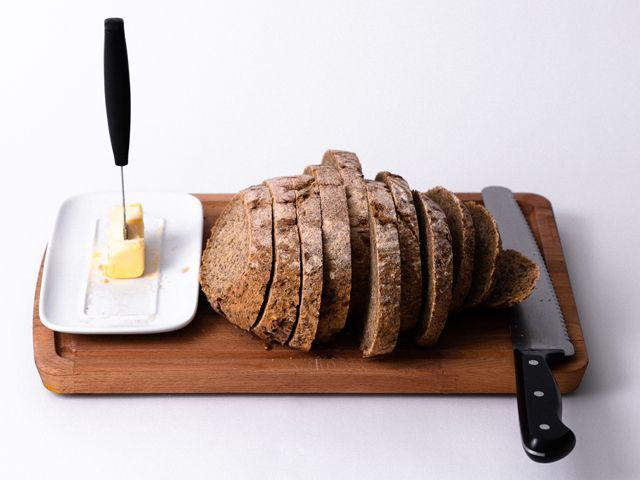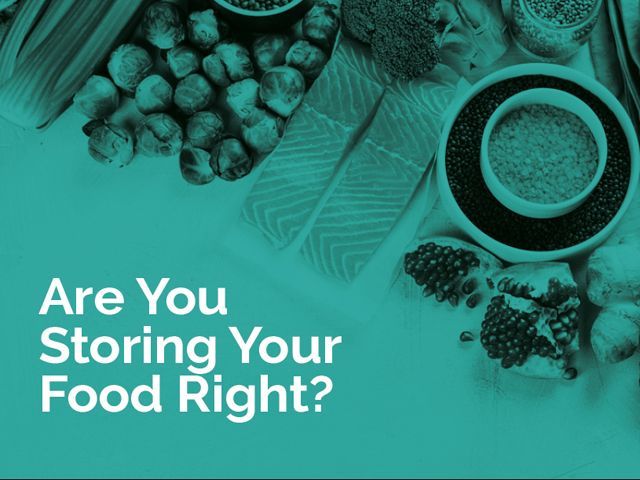
8 food storage myths debunked
Aside from buying less, one of the main ways you can avoid food waste is by knowing how to properly store your food. Debunk these common food storage myths with Tap Warehouse.

Image: Tap Warehouse
Do you always find yourself throwing out the remains of a bag of salad? Or struggle to eat the full loaf of bread before it goes stale? There’s no denying that we’re all guilty of throwing away food. But, it doesn’t have to be this way.
Tap Warehouse has demystified the process of storing food, to help keep your food fresher for longer whilst saving you a bit of money in the meantime.
Its research has revealed that British households throw out almost a third (29%) of their food shop every month. With the average household food shop costing £241 per month, that’s £70 worth of food heading straight to the bin. Over a yearly basis, this amounts to £840!
Not only that, research by WRAP states UK households waste eight meals a week. Over a year this equates to a colossal 416 meals – enough to feed one person for more than 4 months.
It’s evident the ways and rules on storing food need to be clearer, so read on to uncover how to save your food and money.
1. Despite being a debate in most British households, ketchup lasts just as long in the fridge or cupboard.
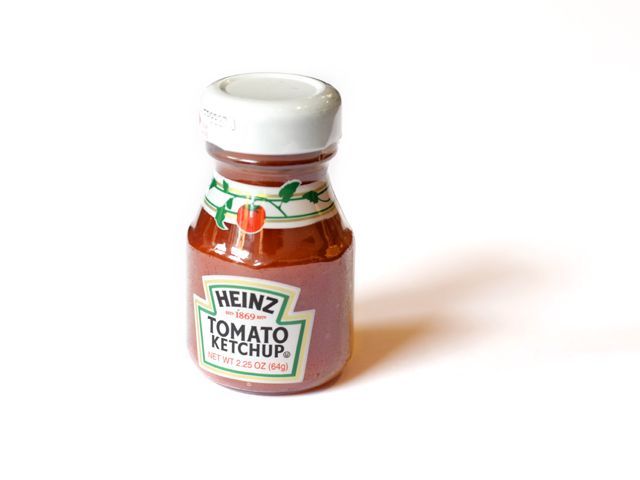
Image: Matt Popovich
Whilst this can be a big debate in any British household, the truth is that there’s no right way to store ketchup. It lasts just as long in either place. However, what is a significant change between the two is the change in the taste. It is more acidic if you leave it in the cupboard at room temperature.
Love the taste of Heinz tomato-based products? Check out these recipes using Heinz Beanz.
2. You should never put bread, cakes or doughnuts in the fridge – this makes them go stale quicker.
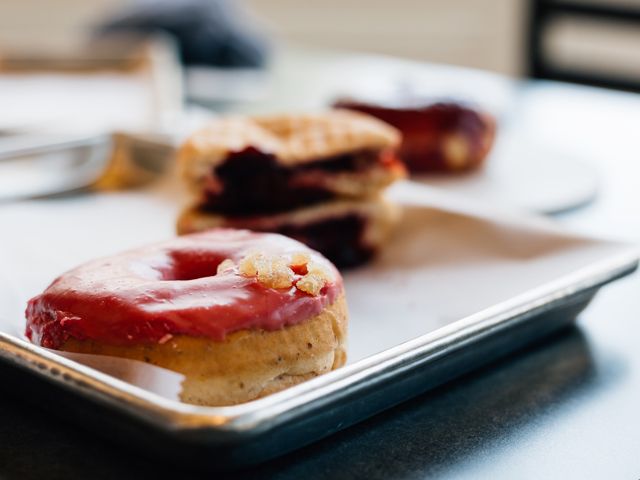
Image: Allie Smith
If you live in a smaller household, finishing a loaf of bread before it goes out of date can seem like a chore.However, there’s no need to throw it away. Instead, if you feel like you’re not going to finish it in time, put it in the freezer. Here it can last up to three months. Just whatever you do, do not store it in the fridge as it will go stale much quicker.
3. Potatoes shouldn’t be stored in the fridge as the sugars turn into a carcinogen.
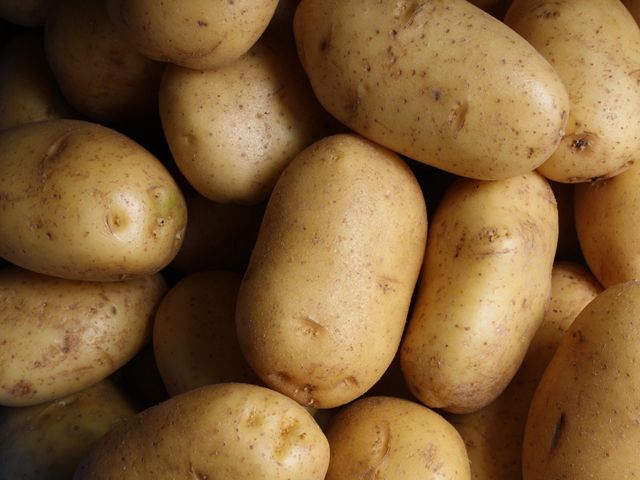
Image: Lars Blankers
Doing this can actually come with health implications. Potatoes turn sweet once refrigerated and these sugars can turn into a harmful carcinogen (a substance that potentially can cause cancer), named acrylamide.
Need to jazz up your spuds? Our vegan hasselback potatoes and crispy chips make the perfect accompanying side dishes to a main course!
4. Storing your eggs in the fridge door causes constant temperature changes, which makes them rot quicker.

Image: Erol Ahmet
Most fridges have a special egg rack in the door for you to store your eggs, so it would seem to make perfect sense to store your eggs here. But did you know that keeping eggs in the fridge door will make them rot quicker? This part of the fridge is actually the warmest, because it’s subject to constant temperature changes every time the door is opened. To keep your eggs fresher for longer, store them at a consistent temperature below 20oC.
Although you shouldn’t store eggs in the fridge door, you can however store them in the freezer. Just crack the eggs into containers and they will last up to 12 months. This is the perfect solution if you find yourself not eating the eggs before the ‘use by’ date on the packaging.
Partial to an egg or two? Check out Meliz Cooks’ Cypriot-style potato salad recipe.
5. Butter shouldn’t be left at room temperature, as the fatty content means it will only last 1-2 days
Image: Jude Infantini
The fatty content of the butter means that if you leave it at room temperature, it will only last 1-2 days. However, if you store it within the fridge, it can last up to three months. But, if that’s not long enough, you can even store your butter in the freezer for up to nine months! Then when you need to use it, just leave it to defrost in the fridge for six to seven hours.
Use butter in your baking? Check out the Breville HeatSoft mixer in our baking buyer’s guide.
6. You can eat fruit and vegetables beyond the date on the packaging. They are just a ‘best-before’ recommendation which focuses on quality, not safety.
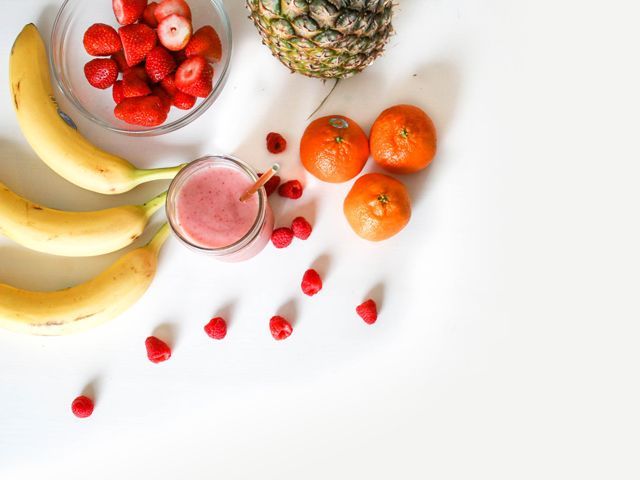
Image: Element5 Digital
Did you know that the dates you see on fruit and vegetable packaging are actually ‘best-before’ dates? There’s actually no issue eating this fresh produce after the ‘best-before’ date (unless of course, it’s mouldy).
However, if you don’t intend to eat the fruit and vegetables within the ‘best-before’ date, you can store them in the freezer. Things like herbs, garlic and chilli can even be used directly from the freezer.
It’s also worth noting that some foods with high water content, like tomatoes, salad greens, strawberries and cucumbers, can go mushy once they’ve thawed. They are, however, great for making smoothies or for cooking if you want to add some flavour or better still, use them up in a warming Autumn dessert!
7. You should never defrost your meat by leaving it at room temperature; it actually causes more bacteria to grow.
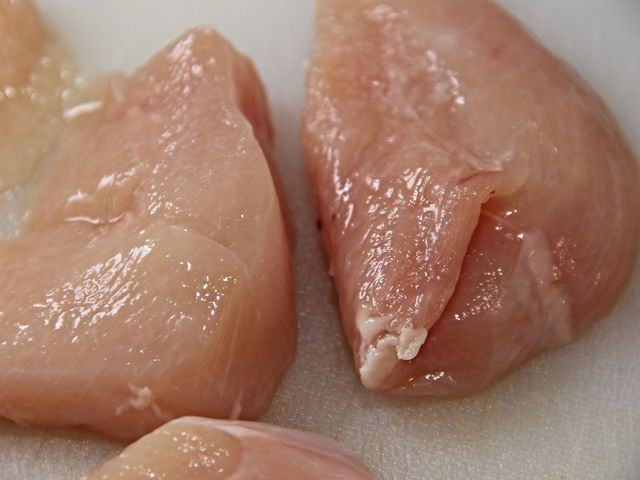
Image: Manfred Richter
More than half of the UK (54%) defrost meat and fish at room temperature, which you definitely shouldn’t be doing. Thawing it this way can cause bacteria to grow in the food if it gets too warm. Instead, you should defrost the meat or fish overnight in the fridge, or just zap in the microwave if you’re short on time. Make sure you use the defrost setting on your microwave and keep checking the meat every minute to assess whether or not it has defrosted.
Entertaining friends or family? These easy BBQ recipes including prawn tacos and lamb rib burgers are sure to impress!
8. Whilst 66% of Brits check whether meat is edible by smelling it, it turns out that the bacteria that causes food poisoning does not have a smell
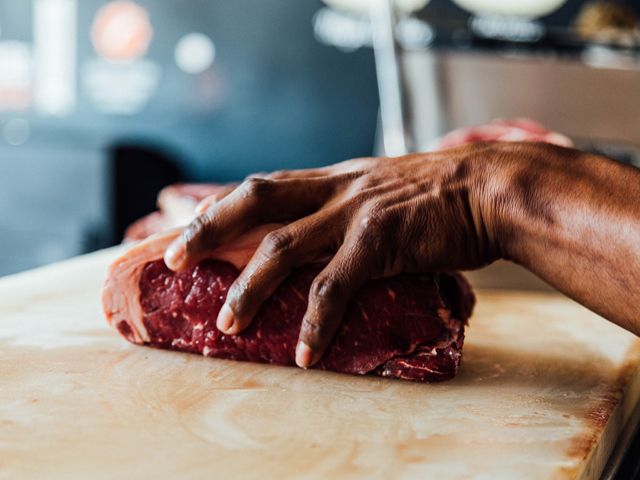
Image: Armando ascorve morale
Did you know that two-thirds (66%) of Brits determine if raw meat is still edible by just smelling it? Unfortunately, you cannot smell the bacteria that can cause food poisoning, so this practice is extremely dangerous. Instead, you should check the use-by date, and never eat the meat after the use-by date, unless it’s already been frozen.
Now recreate our Philly cheesesteak recipe using a sandwich maker here.
Helpful resources from Tap Warehouse
Meat, Poultry & Seafood guidelines
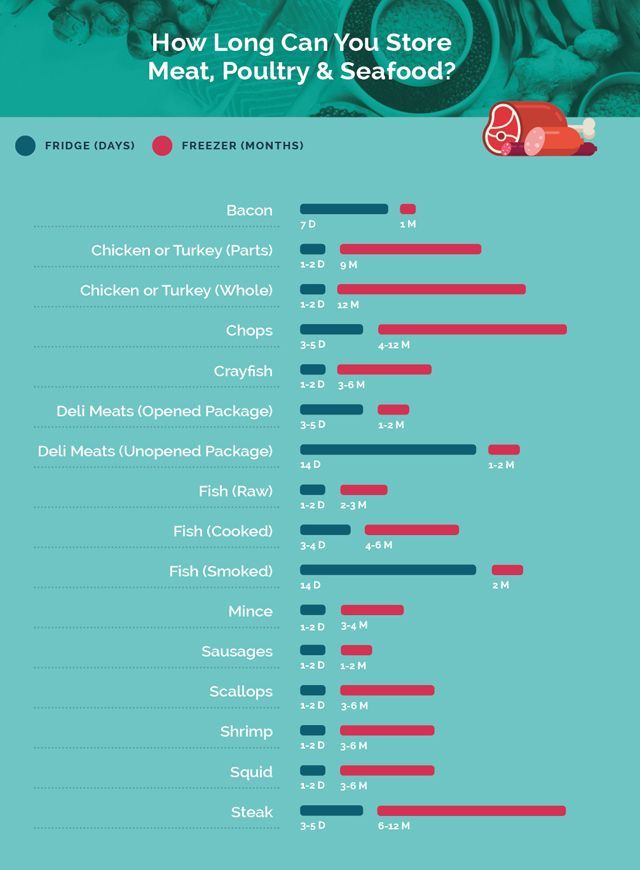
Dairy guidelines
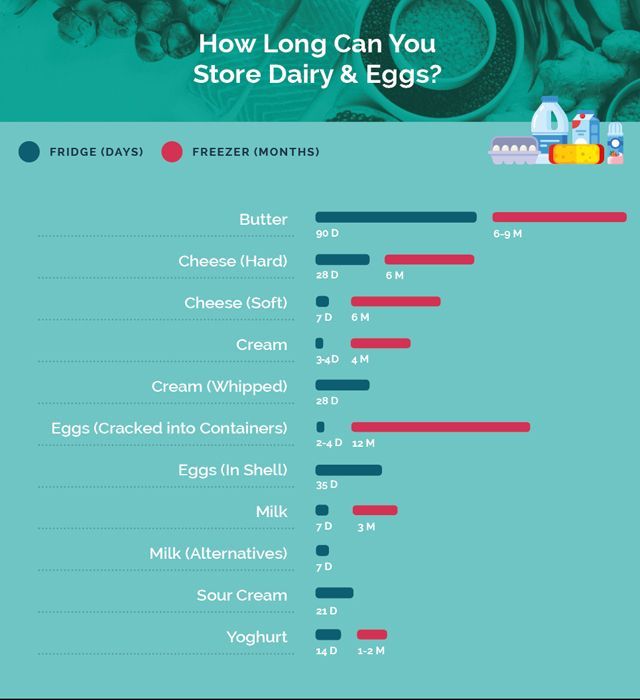
Fruit & vegetable guidelines
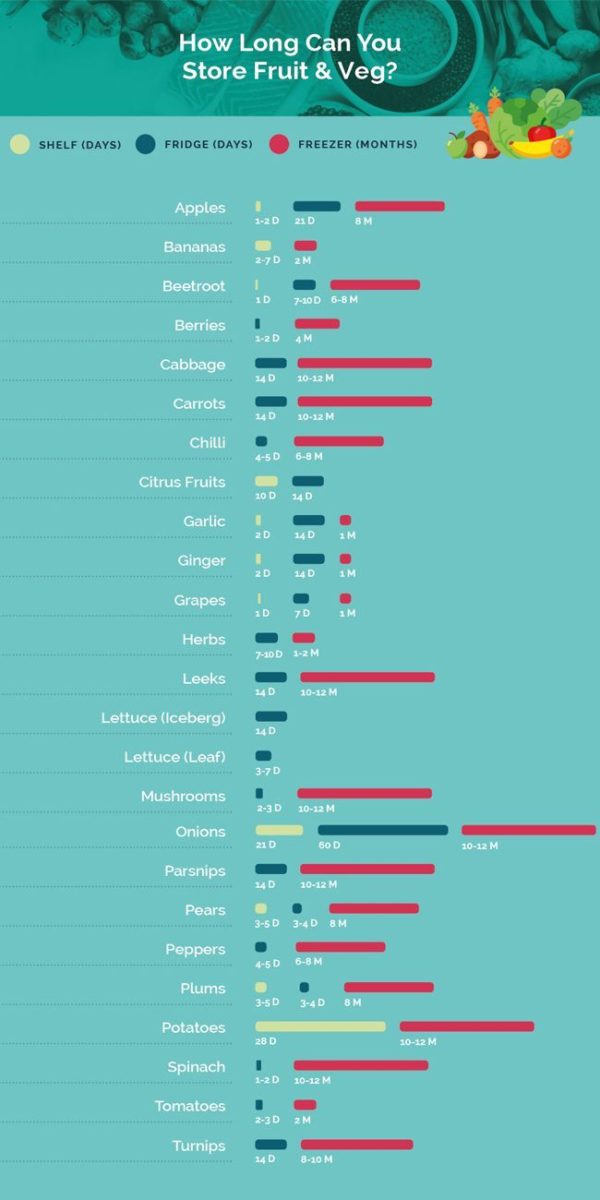
Use-by vs. best-before – what’s the difference?
No matter how well you store your food, it can still go out of date. But, what are you supposed to look for to check if it’s ok to eat?
There are two types of date labels found on food:
Use-by dates
Did you know that a lot of the UK assess the freshness of their food by smelling it? According to the Food Standards Agency, 73% of Brits complete a smell-test for milk and yoghurt, and 62% for seafood.
Instead, you should go by the use-by date, which is often found in foods that perish quickly, such as meat products. The bacteria that cause food poisoning cannot be seen, tasted or smelled – so it’s important to go by the use-by date.
Best-before dates
These dates are most commonly found on the packaging of fresh produce, such as condiments, fruit, and vegetables. Best-before is about the quality and not safety, so you can usually eat these foods a couple of weeks after the best-before date.
How many of the storage myths have you fallen victim to? Tweet us @goodhomesmag, post a comment on our Facebook page or share your tips on Instagram with the hashtag #thisgoodhome for a chance to be featured on our Instagram feed.





